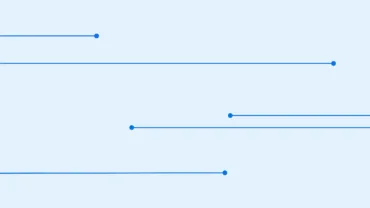Online marketplaces have become a popular choice for online consumer shopping due to their convenience and ease of use, allowing people to shop from the comfort of their own homes. These marketplaces differ from traditional online retailers, making them all the more appealing to creative artists and entrepreneurs who can sell their products without incurring the costs of opening a physical store or building a website from scratch. Online marketplaces provide a platform for small business owners to showcase their products and services to a broader audience. However, there is also a high propensity for fraud due to the lack of strict regulations imposed on sellers, which enables fraudsters to take advantage of unsuspecting consumers.
Despite the familiarity of well-known brands like Facebook and Amazon Marketplace, they are not immune to fraud. Fraudsters operating from outside the U.S. can still exploit consumers. To address this issue, the U.S. Congress introduced a bill in 2021 called The INFORM Consumers Act, with the primary goal of protecting consumers from fraudsters and counterfeit goods.
Online marketplaces such as Etsy and eBay must comply with the INFORM Consumers Act by June 27, 2023. The bill requires online marketplaces to implement due diligence measures to ensure their sellers are legitimate businesses and that the products they sell are authentic. Online marketplaces must verify the identity of their sellers by collecting and verifying their tax ID numbers, government-issued IDs, and bank account information. They must also implement protocols to identify and remove counterfeit products from their platforms and provide information to consumers about the products they purchase. In addition, information such as the identity of the seller, their name, business address, contact information, and country of origin (for products they purchase) must be made readily available to consumers.
The INFORM Consumers Act will have a significant impact on online marketplaces, resulting in increased costs as they invest in new systems, controls, and processes to meet the requirements of the bill. However, it will also have a positive impact on consumers, as they will have more confidence in the products they purchase online and be better protected from potential fraud caused by counterfeit products and nefarious sellers.
With the expansive and ever-growing due diligence technology available today, there is no reason why online marketplaces cannot have thorough and efficient due diligence controls in place to mitigate risk, fraud, and loss for both their customers and the business as a whole. Thomson Reuters Risk and Fraud Solutions provide end-to-end solutions from document authentication, person and business verification to in-depth risk scoring and enhanced due diligence reporting.
Online marketplace providers may find the increased cost challenging, but integrating solid due diligence tools can prevent fraudsters from exploiting unsuspecting consumers and build more confidence in the buyer-seller relationship. This, in turn, can bring consumers back to online marketplace providers who take the time to ensure their sellers are legitimate.
__________________________________________________________________________
Thomson Reuters is not a consumer reporting agency and none of its services or the data contained therein constitute a ‘consumer report’ as such term is defined in the Federal Fair Credit Reporting Act (FCRA), 15 U.S.C. sec. 1681 et seq. The data provided to you may not be used as a factor in consumer debt collection decisioning, establishing a consumer’s eligibility for credit, insurance, employment, government benefits, or housing, or for any other purpose authorized under the FCRA. By accessing one of our services, you agree not to use the service or data for any purpose authorized under the FCRA or in relation to taking an adverse action relating to a consumer application.








